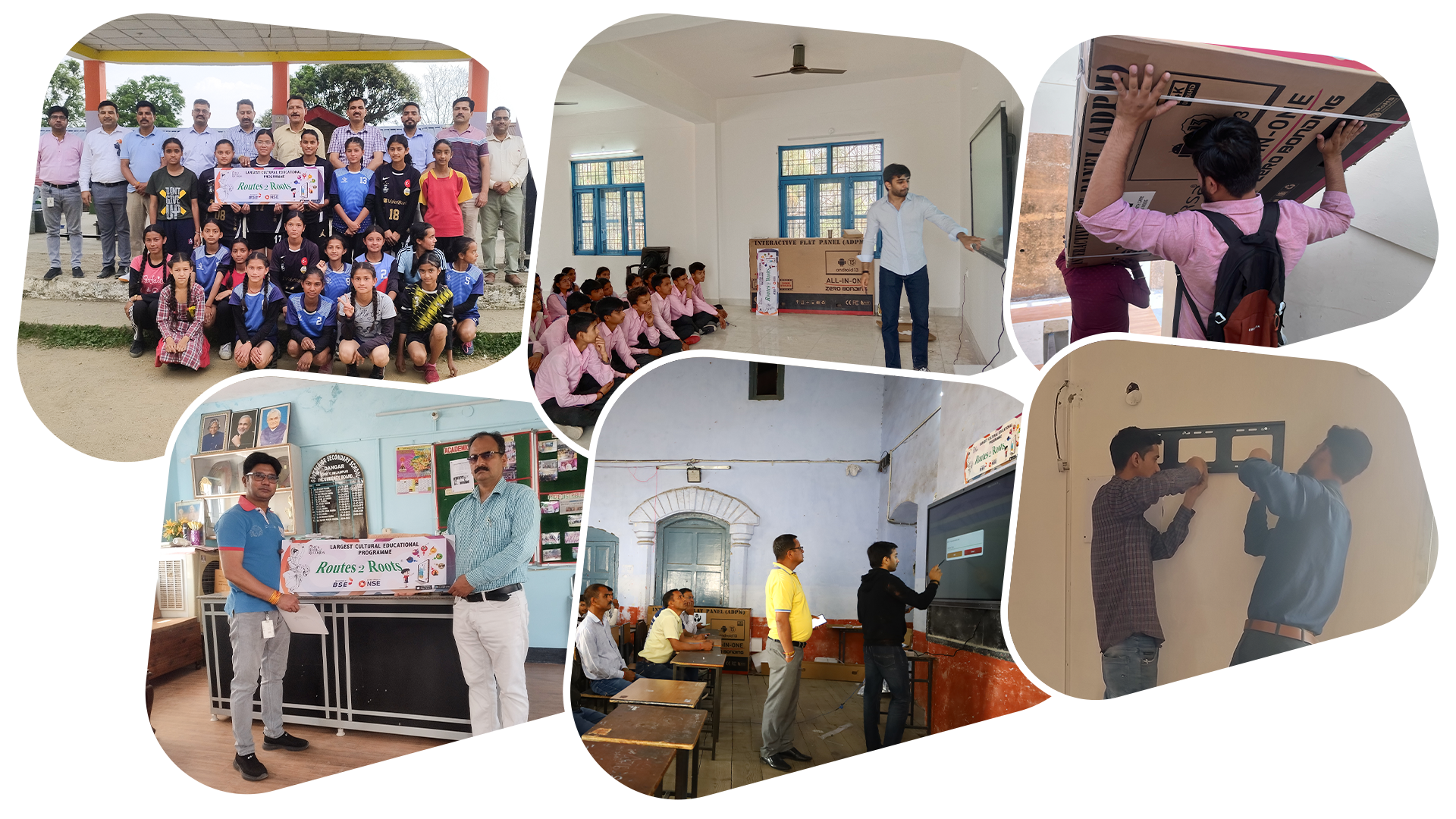


State of Art IFP Panels Installed in All the Districts of Uttarakhand & Himachal Pradesh - Digitisation of Remote Schools
Routes 2 Roots is progressing steadily in its endeavour to make
education inclusive and accessible to students in the remote areas
of India as well as for students who do not have easy access to such
facilities.
In its latest initiative as part of its outreach to benefit students
in regions which are inaccessible due to difficult terrain such as
mountains, the technical team of the NGO carried out installation of
IFPs (Interactive Flat Panels) in schools across districts of the
states of Uttarakhand and Himachal Pradesh.
The adjoining states are among regions in which aspirational
districts have been earmarked for levelling up in the sphere of
education and holistic development of schools and students. 12
districts in Himachal Pradesh and 13 of Uttarakhand have been
selected where four schools in each district have been digitized. In
addition to the art and culture content as per the curriculum of
Routes 2 Roots, K 12 content according to the approved curriculum of
NCERT has also been provided to the students in these schools. This
consists of 50,000 educational videos and 100,000 Question-Answers
from the curriculum as learning tools for students. It has enabled
students in distant regions with extreme terrains to receive quality
education and facilities bringing them on par with city education.
In addition, comprehensive training has been given to teachers for
using the latest equipment provided by the NGO. The new panels are
special as they not only provide high quality broadcast of live
classes from Routes 2 Roots but also extra space of 1 TB for storage
of content when internet availability is a challenge.
Most of the schools selected for this activity in the two states are
among those that suffered excessive damage during last year’s flash
floods. Students here do not have access to basic facilities such as
chairs and desks in classrooms. The seating has been organized on
the floor for their classes and many don’t have classrooms at all.
Their classes are being held in the open under trees. Every step
taken by the NGO to provide facilities to these schools is in sync
with its journey of creating high quality learning opportunities for
the future generations of the country.
